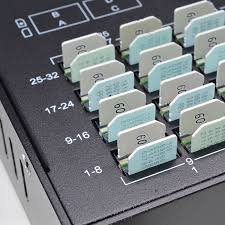BENGALURU: Two men from Kerala have been arrested by the Central Crime Branch (CCB) in Bengaluru for running an illegal telephone exchange that converted international calls into local ones.
The suspects, Fayaz MA (31) and Mohammed Saffaf (30), were operating out of a rented house in Immdhalli, Whitefield, for the past six months. According to investigators, they used advanced SIM box technology and unauthorised software to reroute international phone calls to make them appear as domestic calls, causing revenue losses to telecom service providers and potentially endangering national security.
FCRF Launches India’s Premier Certified Data Protection Officer Program Aligned with DPDP Act
Foreign Links and Hawala Trail
The CCB revealed that the duo were acting under instructions from a handler based in a Gulf country, who received payments through the hawala network. The racket enabled many Gulf-based immigrants, particularly labourers, to make calls to their families in India at a significantly lower cost.
Police officials said the suspects earned approximately Rs 5 lakh per month through the operation and had sourced illegal SIM cards from foreign countries. The Department of Telecommunications (DoT) has been informed and is expected to assess the financial losses shortly.
Seized Equipment and Security Concerns
During the raid, authorities recovered 702 SIM cards, nine SIM boxes, six routers, multiple laptops, and mobile phones. Investigators are verifying whether the routed calls were used in any criminal activities.
“The technology used bypasses international gateways and allows anonymous communication, which can be exploited for unlawful purposes,” a senior officer stated.
The illegal call routing not only caused direct monetary losses to telecom operators but also created vulnerabilities within India’s communication network. Officials are now tracing the origins of the SIM cards and attempting to establish the full scale of the operation.
Further investigation is underway to determine the involvement of additional individuals and whether similar modules exist elsewhere in the country.


